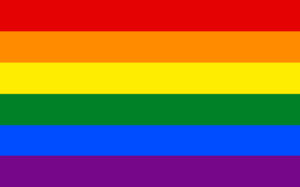Title VII Now Protects Maryland Employees Against Sexual Orientation and Gender Identity Discrimination
 For a while now, Maryland employees have enjoyed some of the more comprehensive workplace discrimination protections. For example, Maryland law prohibits employers from discriminating against employees because of their gender identity or sexual orientation.
For a while now, Maryland employees have enjoyed some of the more comprehensive workplace discrimination protections. For example, Maryland law prohibits employers from discriminating against employees because of their gender identity or sexual orientation.
Until just recently, there were no similar protections under federal law. But in the landmark case, Bostock v. Clayton County, Georgia, the Supreme Court held for the first time, that Title VII of the Civil Rights Act of 1964 (Title VII) protects employees against sexual orientation and gender identity workplace discrimination.
If you believe that you’re the victim of workplace discrimination because of your gender identity or sexual orientation, you can now take legal action under Maryland law, federal law or both. But deciding which path to take and figuring out the process isn’t the easiest thing to do. That’s why it might be a good idea to contact the Law Firm of J.W. Stafford, where you can obtain the legal counsel of a knowledgeable Maryland employment lawyer to help you with your case.
The Evolution of Sex Discrimination Under Title VII
As literally worded, Title VII does not stop an employer from discriminating against an employee on the basis of the employee’s sexual orientation or gender identity. Instead, it prohibits discrimination because of an employee’s sex.
Over the past few decades, the Supreme Court had considered whether the term, “sex” also barred other types of discrimination. In 1976, the Supreme Court concluded in General Electric Co. v. Gilbert that pregnancy discrimination was not a form of sex discrimination under Title VII. In response to this case, Congress passed the Pregnancy Discrimination Act of 1978 (PDA).
In 1998, the Supreme Court expanded what constituted sex discrimination when it held unanimously in Oncale v. Sundowner Offshore Services, Inc. that same-sex sexual harassment was prohibited under Title VII.
What’s notable about the Oncale decision is that the Supreme Court recognized that when Congress drafted Title VII, it did not do so with the primary concern of rooting out same-sex workplace sexual harassment.
The next notable question about sex discrimination under Title VII was whether it prohibited an employer from discriminating against an employee because of the employee’s sexual orientation or gender identity.
Various federal courts had answered this question while coming to opposite results. The only way to resolve the split in the federal courts was for the Supreme Court to step in, and they did in the Bostock case.
Bostock v. Clayton County, Georgia
This case was a combination of three cases, two of which involved an employee suffering discrimination because of his sexual orientation while the third case dealt with an instance of gender identity discrimination.
In a 6-3 decision, the Supreme Court stated that Title VII’s sex discrimination protections also applied to discrimination based on an employee’s sexual orientation or gender identity. The crux of the argument was that discrimination of someone’s gender identity or sexual orientation inherently involved their sex.
For instance, an employer who fires a biological male who presents himself as the female gender is not firing the employee because they engage in behaviors typically associated with women. If that were the case, the employer would fire all employees, male and female, who decided to look and act in a feminine way.
Instead, the employer’s discrimination is really about having a male employee choosing to act in a feminine way. Because this form of discrimination takes the sex of the employee into account, this is just another form of sex discrimination.
The primary opposition to expanding Title VII’s sex discrimination protections came from conservative justices who believed Congress never intended for the term “sex” to apply to gender identity and sexual orientation. However, recall from the Oncale case that this didn’t stop the Supreme Court from making its own decision as to what constituted sexual discrimination, whether intended by Congress or not.
Another argument from the conservative justices was that the rights of religious employers would be jeopardized by this ruling. But thanks to a case that came out just weeks later in Our Lady of Guadalupe School v. Morrissey-Berru, the Supreme Court drastically expanded situations where religious employers could ignore federal anti-discrimination laws (such as Title VII) and legally discriminate against its employees.
Have a Question About Workplace Discrimination? Get The Answers You Need From Our Maryland Employment Lawyer
To learn more about what your workplace rights are, whether under federal or Maryland law, it’s a good idea to speak with a Maryland employment lawyer at the Law Firm of J.W. Stafford. Call us at 410-514-6099.
